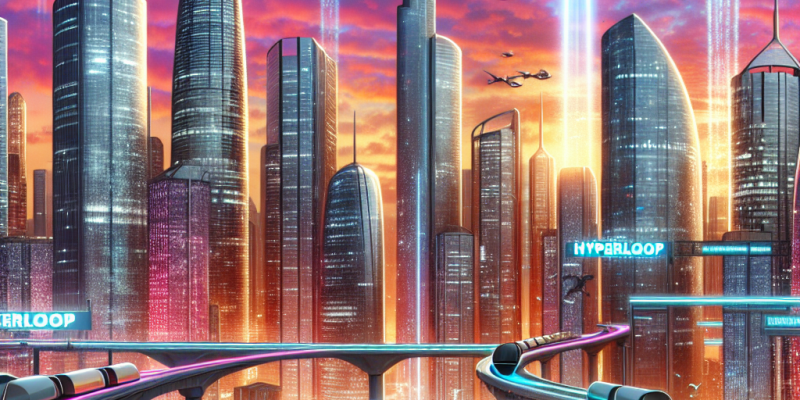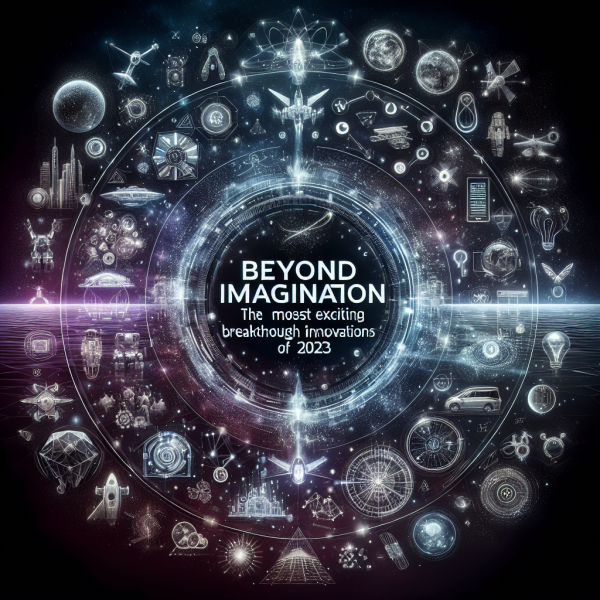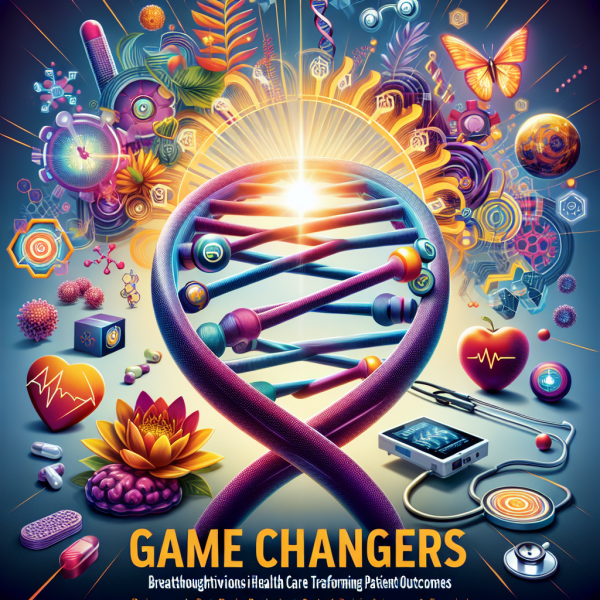Innovate or Die: Breakthrough Technologies Disrupting Traditional Industries

In an era defined by rapid technological advancement and shifting consumer expectations, the mantra “innovate or die” has never rung truer. Traditional industries are facing unprecedented disruption driven by breakthrough technologies that challenge long-established business models. From healthcare to agriculture, the relentless march of innovation is reshaping markets, redefining consumer experiences, and pushing legacy organizations to the brink. This article explores several key technologies causing seismic shifts across various sectors and the imperative for businesses to adopt a forward-thinking mindset.
1. Artificial Intelligence and Machine Learning
Artificial intelligence (AI) and machine learning (ML) are not just buzzwords; they are technologies that are fundamentally changing how businesses operate. In sectors like finance, AI algorithms analyze vast amounts of data to inform investment decisions and detect fraudulent activities in real-time, a task that was unimaginable just a few years ago.
In healthcare, AI is revolutionizing diagnostics and patient care by enabling predictive analytics and customized treatment plans. Technologies such as natural language processing are aiding in interpreting patient data and streamlining administrative tasks, allowing healthcare providers to focus more on patient care rather than paperwork.
Traditional companies that fail to integrate AI into their operations risk being left behind. For instance, retail giants use AI-driven analytics to enhance customer experiences and optimize supply chains, showcasing how vital this technology has become in maintaining market relevance.
2. Blockchain Technology
Blockchain, the technology behind cryptocurrencies, is making waves across various industries, particularly in supply chain management, finance, and healthcare. Its decentralized and transparent nature enhances security and trust in transactions by providing an immutable record of all transactions.
In the supply chain, blockchain improves traceability, allowing businesses to verify the authenticity of products and ensure ethical sourcing. Companies like Walmart are already using blockchain to trace the origin of food products, enhancing food safety and consumer trust. Financial institutions are exploring blockchain for secure and instantaneous transactions that eliminate intermediaries and reduce costs.
As traditional players in finance and logistics grapple with the implications of blockchain, adapting to this technology becomes not just an option but an operational necessity to stay competitive.
3. Internet of Things (IoT)
The Internet of Things (IoT) connects devices and systems, enabling data sharing and real-time insights. This interconnectivity is transforming traditional industries such as manufacturing, agriculture, and transportation. In manufacturing, IoT enables predictive maintenance, where machinery is monitored and maintained proactively, minimizing downtime and reducing costs.
Smart agriculture leverages IoT to optimize resource usage—sensors can monitor soil conditions, weather patterns, and crop health, allowing farmers to make data-driven decisions that boost yield and sustainability. In the transportation sector, IoT is paving the way for smarter logistics, reducing costs associated with fuel and fleet management while enhancing delivery efficiency.
Adopting IoT can provide mature industries with a competitive edge, as companies embracing this technology can significantly enhance efficiency, sustainability, and customer satisfaction.
4. Augmented Reality (AR) and Virtual Reality (VR)
Augmented Reality and Virtual Reality are transforming customer interactions, particularly in retail and real estate. Retailers are using AR to create immersive shopping experiences; customers can visualize how products will look in their home before making a purchase. For instance, furniture retailers like IKEA have implemented AR apps that allow customers to see how a piece will fit and look in their space.
In real estate, VR is revolutionizing property viewings, allowing potential buyers to tour homes remotely, thereby broadening the market reach for real estate agents. As consumer preferences shift towards more engaging and informed purchasing decisions, businesses must leverage AR and VR to enhance their customer engagement strategies.
5. 3D Printing
3D printing technology is dismantling traditional manufacturing paradigms by enabling rapid prototyping and custom production. Industries such as aerospace and automotive are using 3D printing to create lightweight components that enhance performance while reducing material waste. This level of customization is nearly impossible with conventional manufacturing techniques, giving businesses that utilize 3D printing a significant advantage.
Furthermore, 3D printing is empowering the maker movement and fostering innovation at a grassroots level, enabling smaller players to compete with established brands. As more companies realize the potential of additive manufacturing, those that fail to adapt may find themselves outpaced by more agile competitors.
Conclusion: The Imperative to Innovate
Disruptive technologies are revolutionizing traditional industries, making innovation imperative for survival. As organizations navigate this transformative landscape, they must cultivate a culture that embraces change and fosters innovation. Those who cling to antiquated processes and resist technological advancement are likely to find themselves on the wrong side of history.
To thrive in this rapidly evolving environment, businesses must understand that the real challenge lies not just in adopting new technologies but in rethinking their entire approach to value creation. In a world where change is the only constant, the ability to innovate is the key to longevity. It’s no longer about merely avoiding extinction; it’s about harnessing technology to create a brighter, more efficient, and sustainable future. As the adage goes, to thrive in a world of disruption, businesses must embrace the motto: innovate or die.














